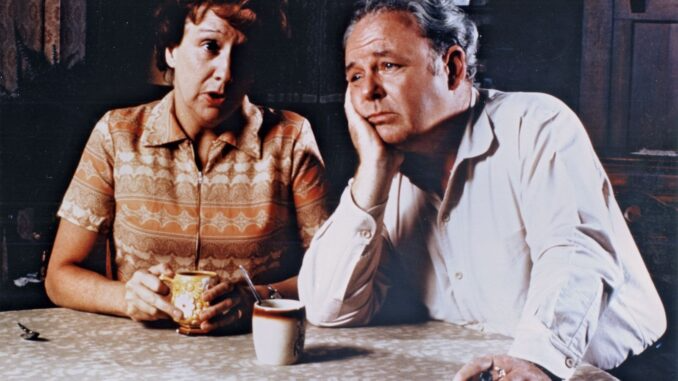
Archie Bunker was offensive, hilarious, and unforgettable. Discover how this unlikely anti-hero became a pop culture icon—and why we still talk about him today.
Why Archie Bunker Still Resonates: The Anti-Hero Who Changed American TV Forever
Decades after All in the Family first aired, one character continues to stir both laughter and discomfort: Archie Bunker. Loud-mouthed, opinionated, and frequently bigoted, Archie was the kind of TV character that forced viewers to face their own prejudices—whether they wanted to or not.
But despite (or perhaps because of) his flaws, Archie Bunker became one of the most iconic figures in television history. He wasn’t a traditional hero. He was deeply flawed, often wrong, and rarely politically correct. And yet, he made America laugh, think, and shift uncomfortably in its seat.
A Mirror to American Society
When All in the Family debuted in 1971, it broke every rule of sitcoms. There were no feel-good laugh tracks covering up real issues. Instead, the show dove headfirst into taboo topics: racism, sexism, war, class, and generational conflict. And at the center of it all was Archie Bunker—a working-class man who said what many were thinking, but few dared to say out loud.
Archie didn’t just reflect one man’s views—he reflected an entire generation’s struggle to adapt to a rapidly changing world. And in doing so, he helped open the door for TV to become a platform for social commentary.
The Genius of Carroll O’Connor’s Performance
Archie Bunker could have easily become a one-dimensional caricature. But actor Carroll O’Connor brought surprising depth to the role. He made Archie human—loving, scared, proud, and painfully relatable. He wasn’t just shouting offensive opinions; he was clinging to a worldview that felt like it was slipping away.
That complexity made him unforgettable. You might cringe at what he said—but you also saw his vulnerability. And that’s what made the audience keep watching.
Still Relevant—And Still Controversial
Even today, reruns of All in the Family spark debate. Was Archie a satire of bigotry—or a celebration of it? Did the show succeed in challenging prejudice—or risk normalizing it?
What’s clear is that Archie Bunker remains relevant because he represents conversations that are still happening. His character reminds us that real change is messy, uncomfortable, and often starts with hard truths.
The Legacy of an Anti-Hero
Archie paved the way for a new kind of television protagonist: the anti-hero. Without him, there might be no Tony Soprano, no Walter White, no Don Draper. Characters who are deeply flawed—but still compelling. Characters who make us reflect on ourselves, our society, and what we’re willing to accept.
In an era where TV often plays it safe, Archie Bunker still stands out as a bold experiment that worked—because it dared to be honest.